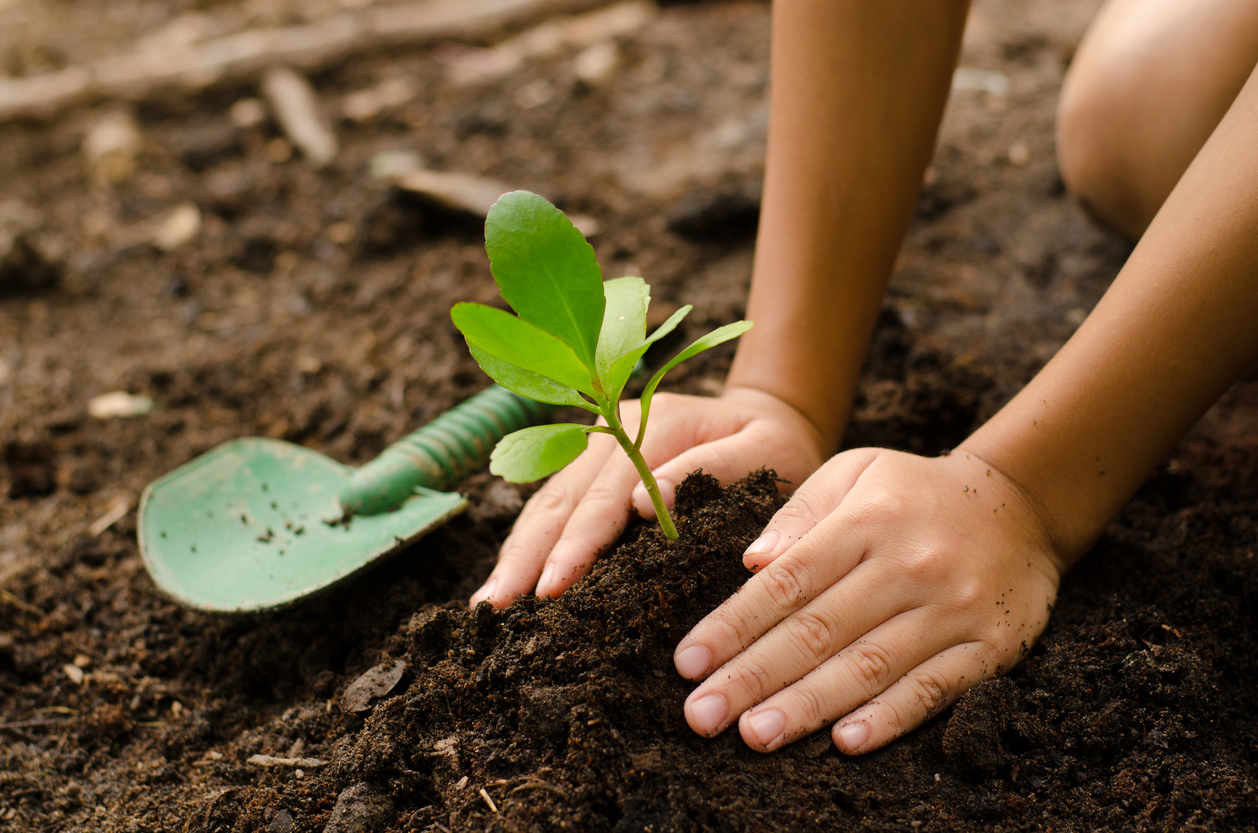Getting down and dirty to help prevent stormwater pollution!
April 13, 2020

April is National Lawn and Garden month, and there’s no better time to learn proper lawn and garden care.
If not done properly many common gardening activities such as landscaping, fertilizer and pesticide application, and irrigation can lead to water pollution through the storm drain system. Unlike the sanitary sewer system, water that flows through the storm drain system is not treated before entering our local waterways and flowing to the ocean. This water can negatively impact recreational use, wildlife habitat, and even human health. Here at H2OC, we strive to keep our waterways sparkling. There are many actions we can take to prevent stormwater pollution and preserve the quality of our waterways.
So roll up those sleeves, grab some gardening gloves and dig into these tips to help prevent stormwater pollution while beautifying your landscaping.
- Keep your yard green and stormwater safe. Check out our Lawn & Garden tips here on fertilizer and pesticide use, and irrigation management.
- Trade in turf for OC Garden Friendly plants. They’re adapted to local growing conditions and require fewer chemical inputs to thrive. By reducing your water and chemical application you’ll be saving money and helping your local watershed. Click here for OC Garden Friendly options.
- Water in short cycles. When watering in short cycles, the water is better able to penetrate the ground. Longer watering sessions can lead to waterlogged soil and runoff, which carries pollutants to our waterways. While you’re at it, make sure your sprinkler heads are properly aligned to avoid spraying on sidewalks or hard surfaces.
- Rid your lawn of thieving weeds. Weeds rob your yard of both water and nutrients. Weeding by hand eliminates the need for herbicides to control the weed population. If herbicides are required, use only the recommended amount and never use within 48 hours of a forecasted rain event.
- Get even more down and dirty by creating a rain garden. Rain gardens are a collection of plants in a small depression designed to temporarily hold runoff and allow for infiltration. Check out our rain garden page for more information on how to make it happen!
- Landscape cleanup – It’s a dirty job, but someone’s got to do it! Once you’re done caring for your lawn and garden, properly dispose of yard waste by composting it or placing it in the green waste bin from your waste hauler. If you have unused pesticides and fertilizers, bring them to a Household Hazardous Waste Collection Center (HHWCC) to be recycled.
We hope you found our National Lawn and Garden Month tips helpful in preventing stormwater pollution. For more information on stormwater pollution and other ways you can keep our waterways sparkling, explore the rest of our website here.